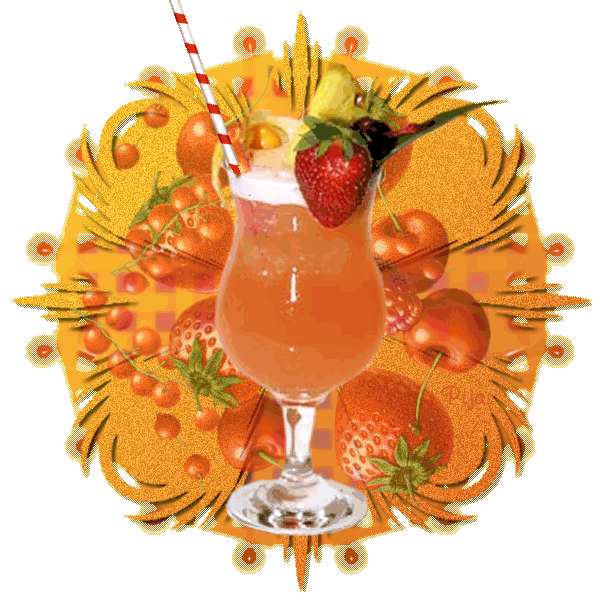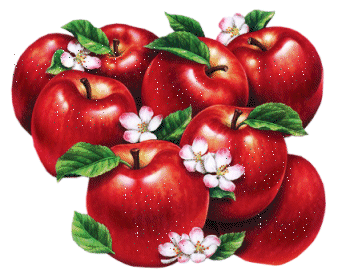
The Good... Look for omega-3s in fatty fish like salmon, tilapia, and cod, or in flax seed and flax seed oil. Many eggs are now fortified with omega-3 too. Our bodies cannot make these essential fatty acids - crucial for bolstering the skin barrier, which keeps moisture in and irritants out of your skin - so it’s important to get them through diet and supplements. (That’s also why vegetarians and those on low-fat or cholesterol-free diets are more likely to have dry skin.) There is even some evidence that omega-3s’ anti-inflammatory effects can improve chronic skin conditions like rosacea and atopic dermatitis, although that has not been confirmed. Leafy greens, squash, carrots, and mangoes are among the foods rich in vitamin A, which helps decrease skin’s oil production. There is also some evidence that vitamin A may improve psoriasis, since Retin-A (which is derived from vitamin A) and other vitamin A drugs have proven successful in treating it. You can’t eat too much vitamin A, but taking too much of it through supplements can lead to excessively dry skin - and more serious health problems like increased pressure in the brain. Your best bet, then, is to stick to vitamin-A rich foods. It can be hard to get enough vitamin D, typically known as the vitamin we get from sun exposure, through your diet - but that doesn’t mean you shouldn’t include it in your meals as much as possible! In addition to fortified foods (particularly milk), eggs, fish (salmon and cod are great options), and liver are rich sources of this crucial nutrient. (While only a few minutes of sun exposure a day are necessary to produce requisite levels of vitamin D, even that can be too much for those who are at higher risk for skin cancer. In those cases, the right dietary choices and a daily vitamin D supplement are the best bet.)
Do your cooking with vegetable oils, and snack on a handful of almonds each day - those are great sources of vitamin E. A powerful antioxidant, vitamin E can help prevent the signs of skin aging and even bolster your defenses against skin cancer. Studies also suggest that vitamin E consumed orally can increase the levels of vitamin E on your skin’s surface - great news, in particular, for anyone with dry skin!
Devoted to gourmet olive oils? Consider saving ‘em for salad dressing and doing your cooking with safflower oil or sunflower oil instead - they’re both richer in linoleic acid. Linoleic acid is an omega-6 fatty acid, which, like omega-3s, are essential for healthy cells but not made naturally by the body. Omega-6s help form cell membranes and are necessary for the formation of prostaglandins, hormones that facilitate a myriad of cell processes and help minimize inflammation.
Like Mom always said, eat your broccoli! With one vegetable, you’ll get high amounts of vitamins A, C, and K (among many other nutrients).
Green tea, pomegranate, and berries are wonderful sources of antioxidants. As more and more topical products tout their antioxidant activity, it’s important to remember that a combination of topical and oral antioxidants is always best to fight free radicals, that is, molecules with an uneven number of electrons that cause damage to cell membranes, lipids, proteins, and DNA.
Don’t ignore spices and seasonings! Many spices have antioxidant activity too: cumin, oregano, onions, ginseng, and rosemary, for example. (If you have rosacea, though, your skin can become red and flushed from certain spices, so be sure you know your skin type.) And for dessert, how about a little dark chocolate? Chocolate is a great antioxidant, and it’s a myth that it causes acne. (We now know it’s sugar, not chocolate itself, that exacerbates breakouts - if acne is a concern, sugar-free chocolate may be just the answer for you. And dark chocolate has far less sugar than typical milk chocolate.) My weakness? Chocolate hazelnut pie. Yum!
The Bad... For years, your dentist has said it, and now dermatologists are saying it too: Sugar can wreak havoc on your system in more ways than one. As far as your skin is concerned, the primary concern is glycation, which occurs when sugar breaks down and enters the bloodstream. Once in the bloodstream, it bonds with protein molecules, including collagen and elastin. As a result, those vital skin components become inflamed and stiff, and eventually cause skin to sag and wrinkle.
Caffeine has long been used topically to constrict veins and improve facial flushing and inflammation. But research is increasingly focused on caffeine’s powerful antioxidant activity, and its anti-inflammatory and anticarcinogenic benefits when consumed orally. Certain caffeinated beverages - green tea, for example - have long been touted for their antioxidant content; now, it looks like even your morning coffee could benefit your skin. Just remember that caffeine is also dehydrating, and should be consumed along with plenty of water. And those who are prone to facial flushing should avoid hot beverages and stick to iced coffee or tea to reap all those anti-inflammatory, antioxidant benefits. We all know that alcohol can cause dehydration and flushing, particularly in those with sensitive skin prone to redness. So what’s good about it? Well, it’s not so much that alcohol itself is good for skin, but rather that certain alcoholic beverages contain other skin-friendly nutrients. In this category, red wine is certainly the leader of the pack; it contains both grape seed extract and resveratrol, two powerful antioxidants. Some research also suggests that the hops in beer offer antioxidant benefits! Just remember, alcohol also creates free radicals, “scavenger” molecules that attack collagen and elastin and speed skin aging. One glass of wine offers antioxidant benefits, but more than that will only create the very damage you’re seeking to reverse. Most people cringe at the word “cholesterol,” but it actually does downright good things for the skin - in fact, it’s one of the three main components of your skin barrier, the layer of lipids that keeps moisture in and irritants out. Of course, you may have important health reasons to cut out cholesterol, which supersede skin concerns. Just be aware that cholesterol-lowering drugs - as well as low-fat vegan and vegetarian diets - can lead to dry skin.

Since we were children, we’ve been told to drink our milk for strong bones, but recent studies suggest that calcium also plays an important role in skin hydration. Milk is also typically fortified with vitamin D, which all of us sun-avoiders need to get though diet and supplements. Furthermore, calcium’s role in bone health applies to the bones in your face as much as, say, your femur: A large part of the volume loss we see in aged faces is due to bone loss. So what’s the down side? Some experts believe that the hormones and/or iodine content in milk and other dairy products can exacerbate acne. So what should you do? The possible link between diet and acne has not been sufficiently proven, but doctors all agree that calcium is crucial. My best advice, then, is to select organic dairy products whenever possible. A good calcium supplement is also a must, particularly for women, as is a vitamin D supplement, particularly if you elect to eliminate milk from your diet.
By : Leslie.Baumann.MD ( www.skintypesolutions.com )
Source : www.hlaw.ie









The link between diet and acne will never be proven to the satisfaction of those doctors and drug companies who make money off treating acne. If you stop all dairy and all high glycemic load foods for six months and your acne goes away, will you still be a patient? As for organic dairy products, they have even more hormones than non-organic products, because they come from healthier cows. With regard to iodine, acne has **never** been shown to be caused by iodine or iodides. it can make folliculitis worse, but acne and folliculitis are two different things.
ReplyDeleteit is presently 8:19 PM, not 8:19 AM.
ReplyDelete